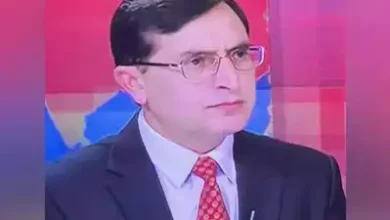Curfew enforced after 3 people were murdered and 16 wounded in ethnic riots in Kirkuk, Iraq: police
After days of tension, authorities placed a curfew on protesters in the multiethnic Iraqi city of Kirkuk, where at least three Kurds were murdered and 16 others were injured.
According to Ziad Khalaf, the local health authority’s director, three persons were shot: two in the head and two in the chest.
He noted that the casualties were two 37-year-olds and a male who was 21 years old.
According to Khalaf, those injured, who included Kurds, Arabs, and three security personnel, were struck by gunshots, stones, or glass.
The curfew was implemented in the evening after opposing demonstrations between Turkmen and Arabs and Kurdish locals became violent in spite of the presence of security.
Police had been stationed in the northern city earlier in the day to serve as a barrier and keep the opposing factions apart.
To get the Kurdish protestors to disperse, warning bullets were fired. Vehicles on a major avenue, according to an AFP journalist, were set on fire.
A commission of investigation investigating the event was requested by Prime Minister Mohamed Shia al-Sudani, who also promised that those guilty would be “held accountable” in a press statement from his office.
In Kirkuk, which has traditionally been a point of contention between the federal government in Baghdad and authorities in the autonomous Kurdistan region in the north, tensions have been building for over a week.
Following news that Sudani had ordered the property to be turned over to the Kurdistan Democratic Party (KDP), which had previously occupied it, protesters from the Arab and Turkmen communities in Kirkuk province held a sit-in on Monday close to the headquarters of the Iraqi security forces.
On Saturday, according to an AFP journalist, Kurdish protestors made an attempt to enter the headquarters.
“Dangerous circumstance”
Sudani imposed a curfew in Kirkuk after the unrest and directed “extensive security operations in the areas affected by the riots,” according to a statement from his office.
He urged everyone to “play their part in preventing strife and preserving security, stability, and order in Kirkuk Governorate”.
Security forces in the province were instructed by Sudani, who also serves as commander-in-chief of the armed forces, to “fulfill their responsibilities in maintaining security and upholding the rule of law.”
Arab and Turkmen protesters persisted in their sit-in outside the security facility late on Saturday.
Local police head General Kawa Gharib was attempting to calm down Kurdish demonstrators in another area of the city.
An area of northern Iraq that produces oil called Kirkuk was taken under control by the KDP and the peshmerga in 2014.
However, after an unsuccessful referendum on Kurdish independence, federal soldiers drove them out in the fall of 2017.
Despite a history of tense interactions, the Sudanese government has mostly succeeded in sustaining friendly ties between Baghdad and Arbil, the capital of the Kurds.
Veteran Kurdish official Massud Barzani charged “rioters” of obstructing the Kirkuk to Arbil route with their sit-in.
According to him, this was “creating a tense and dangerous situation for residents”.
While on Saturday “violence was used against Kurdish youth and demonstrators,” Barzani claimed it was “surprising” that security officers had not stopped “the chaos and illegal behavior of those blocking the road.”
The autonomous region’s prime minister, Masrour Barzani, urged Sudani in Baghdad to “intervene right away to bring this intolerable situation under control.”
As Kirkuk’s Kurdish inhabitants are being persecuted, he also pleaded with them to exercise moderation and avoid using violence.







